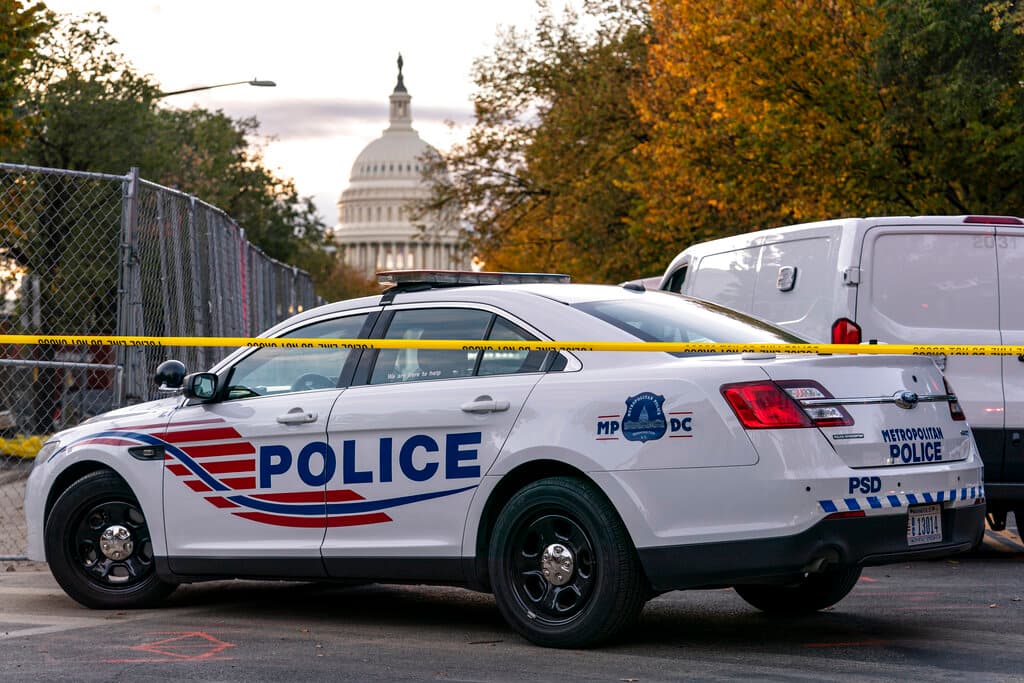Bill To Rein in Runaway Civil Asset Forfeiture Gains Steam in the House
‘Colleagues on both sides of the aisle expressed strong support for the Fair Act,’ Congressman Tim Walberg said.

In the House, a bipartisan coalition is emerging in support of a bill that would rein in civil asset forfeiture, potentially putting an end to stories about authorities seizing property with little or no evidence of a crime.
The Fifth Amendment Integrity Restoration Act of 2023 is gaining steam, clearing the first hurdle towards consideration by the full House Tuesday.
During a hearing of the Judiciary Committee’s subcommittee on the Constitution and limited government, members on both sides of the aisle endorsed the bill as a measure to rein in civil asset forfeiture.
Civil asset forfeiture is a process that, under current law, empowers law enforcement to seize private and personal property that they are then allowed to keep or sell. Law enforcement doesn’t have to prove that the relevant property was involved in a criminal act — it can seize property by simply alleging that it was, even if charges are never brought.
This procedure for property seizures has led to stories over the years of police taking large sums of cash, valuables, and even places of residence without ever bringing charges.
In one report, a North Carolina convenience store owner, Lyndon McLellan, had his bank account seized because he regularly made large cash deposits. Law enforcement alleged that deposits were made in sums of less than $10,000 in an attempt to avoid reporting requirements and conceal criminal activity and seized a bank account worth more than $107,000.
It took Mr. McLellan more than 13 years in court to get his money back, money that was not even associated with a crime. He was eventually awarded legal fees as well.
In a 2020 report on the topic from the libertarian-leaning Institute for Justice, Policing for Profit, the organization found that the states and the federal government had seized at least $68.8 billion in property since 2000, a figure the organization considers a likely underestimate.
The report also found that law enforcement agencies were more likely to engage in civil forfeiture when their budgets were tight, in part, the research suggests, because agencies are able to use forfeited funds to purchase equipment and for other operating expenses.
“As states and Congress look for ways to create a fairer criminal justice system, one reform everyone should be able to agree on is ending civil forfeiture and the perverse profit incentive that fuels it,” one of the report’s co-authors, Jennifer McDonald, said.
The Fair Act would impose a higher bar on the requirement law enforcement must meet to seize personal or private property, including “a substantial connection between the property and the offense.”
Beyond a mere connection between the property and an alleged crime, authorities would also need to establish either that the owner “used the property with intent to facilitate the offense” or “knowingly consented or was willfully blind to the use of the property by another in connection with the offense.”
Wider interest in the bill seems to be growing in the House following Tuesday’s hearing. The bill’s sponsors, Representatives Tim Walberg and Jamie Raskin, celebrated the increasing interest in the issue.
“Colleagues on both sides of the aisle expressed strong support for the Fair Act and the need to continue to advance this important legislation,” Mr. Walberg said.
The bill also picked up support from both Democrats and Republicans on the Constitution and limited government subcommittee, with Chairman Mike Johnson and Ranking Member Mary Gay Scanlon throwing their support behind it.
“The problem today is that current federal standards for civil forfeiture invite abuse,” Mr. Johnson said in a statement following Tuesday’s hearing. “Reform to federal law is necessary to restore the original intent of the law, because it’s an important one, and better protect citizens’ property.”
A House staffer tells the Sun that pressure is mounting to push the bill out of committee, although a full committee hearing hasn’t yet been scheduled.
Outside the halls of Congress, civil asset forfeiture has become the target of both liberal and conservative organizations and activist groups. According to the American Civil Liberties Union, “many police departments use forfeiture to benefit their bottom lines, making seizures motivated by profit rather than crime-fighting.”
An attorney at the Institute for Justice, Kirby West, has also thrown his support behind the Fair Act, calling it a “bill with a wide coalition of advocates outside of Congress and strong bipartisan support within Congress.”
One expected conflict in the push for changes to civil asset forfeiture will be over what organization gets to benefit from any monies or resources seized.
Currently, different administrative agencies are allowed to approve forfeitures and keep the money generated by them. The Fair Act would require a federal court to order forfeiture to the federal government and reroute any funds from the forfeiture to the Treasury’s general fund rather than a federal agency’s budget.
This change would mean that Congress, rather than federal agencies, would be in charge of deciding what to do with the revenue from forfeited property.
The act would also eliminate a program called “equitable sharing,” which allows federal agencies to circumnavigate state laws by sharing forfeiture-related funds with state and local officials.

